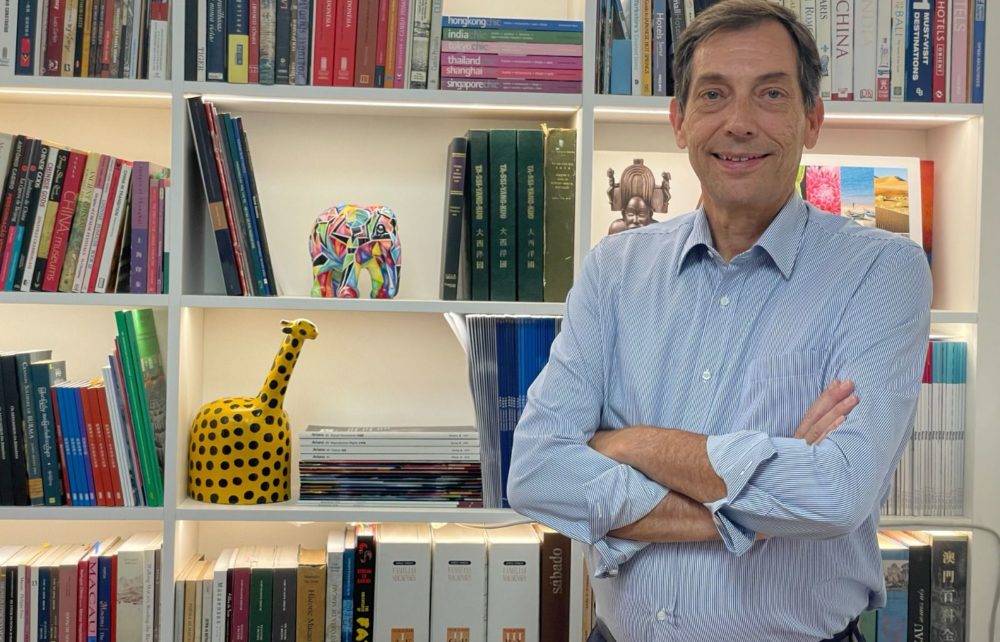by: Jessica Ferreira
CLBrief.com: Could you tell me a bit about yourself and explain what led you to take part in the creation of the Chamber of Commerce and Industry of the Portuguese-speaking Countries in the Greater Bay Area of Guangdong, Hong Kong and Macao (China)?
Rodrigo Brum (RB): I have been closely involved with Macau since the 90s, holding various positions, including the management of the Concordia Industrial Park, and, between 2017 and 2020, I was Deputy Secretary-General of the Forum’s Permanent Secretariat, representing the Portuguese Speaking Countries (PSC).
The genesis of the idea for the Chamber of Commerce and Industry, of which I am one of the founders and mentors, began to take shape while I was serving as Deputy Secretary-General of Forum Macau, and encountered first-hand some challenges in dealing with companies from Portuguese-speaking countries.
The novelty of this Chamber is that it is, in fact, the first to bring together all the companies from the nine Portuguese-speaking countries. Our main objective is to promote trade, economic and business relations, based on complementarity and cooperation, between the PSC and China, through the Greater Bay Area of Guangdong, Hong Kong and Macao. Our aim is to help companies and entrepreneurs realize investment and business opportunities by providing services, guidance and advice, as well as holding missions and conferences.
CLBrief.com: Some of the biggest challenges companies from Portuguese-speaking countries face are the lack of knowledge of the Chinese market, of the legal framework (regulations) and cultural differences. What specific services or support does the Chamber of Commerce plan to provide to ease these difficulties?
RB: Some of our services will involve promoting the dissemination of regulations, promoting the conditions for attracting investment and registering companies, not only between the PSC and China, but also between the Portuguese-speaking countries.
It will be the members themselves, actively involved in the management of the Chamber, who will identify the limitations and obstacles they want to overcome. We know, for example, that the conditions for importing into China impose very strict regulations, which have not always favored PSC companies. So, this is clearly an area that needs to be addressed.
CLBrief.com: How do you intend to engage with the local community and ensure that the Chamber of Commerce reflects the needs and interests of the companies from Portuguese-speaking countries in Macau?
RB: Before becoming Deputy Secretary-General at Forum Macau, I lived in Macau for 10 years. First, as head of the Economy and Finance Office of the last Portuguese administration in Macau, and later as president of the Concordia Industrial Park, so I’ve already established a wide network of contacts in the region, which I’ll be putting to use to the Chamber’s advantage.
CLBrief.com: You mention that the Chamber, now in its start-up phase, will be making contacts and invitations to future members throughout this year, particularly those who will make up its driving force, and that contacts will be made with organizations at the same time. Could you mention who the invitations will be extended to?
This is a process that is currently underway and will be aimed mainly at companies. I’ve already had the opportunity to meet with the leading members of Forum Macau, specifically the Deputy Secretary-General (appointed by the Portuguese-speaking Countries) and the various delegates from each country.
On Monday, I met with the administration of the Macao Trade and Investment Promotion Institute (IPIM), with the aim of establishing complementary, cooperative, and dynamic relations. There has been an initial openness with IPIM which we will develop in future meetings.
In addition to our own network of contacts within companies, we have already begun to establish contacts with the authorities in São Tomé and Príncipe. In February, the first month of my new role, I visited the country and established contacts with other national chambers and business associations, as well as with several ministers and the Prime Minister’s chief of staff.
CLBrief.com: Would your work at the Chamber be a continuation of your work at Forum Macau? And will there be cooperation between the two institutions?
RB: The genesis of this idea has to do with my time as Deputy Secretary-General at Forum Macau. Initially, I encountered this reality because one of the difficulties we felt at the Forum was precisely establishing a relationship with the companies from the Portuguese-speaking countries. While contact with Chinese companies was very easy, due to MOFCOM’s leadership, contact with PSC companies was more challenging. Not least because it’s not just one Portuguese-speaking country, but nine. It is difficult to bring together the universe of PSC companies. The need to create a Chamber of Commerce and Industry that worked in establishing bilateral business relations, based on cooperation, between the PSC and China became, therefore, very clear while I was working at Forum Macau.
CLBrief.com: The PSC has been actively seeking to strengthen its economic ties with China. How will the Chamber of Commerce and Industry contribute to the deepening of these relations?
RB: One of the key objectives is to represent the interests of our members in China. For this to happen, there first needs to be a substantial size and weight of the companies, which will translate into greater representation for the Chamber itself. However, there is another element that will be tackled: the ability to dialog with local and official entities in Macau and China, so that we are able to submit proposals. At this level, our ambition is quite high. We want to be able to convey the needs and challenges of PSC companies to the Chinese official bodies.
This is in line with Li Qiang’s speech during the ceremony of the China Development Forum 2024, who expressed willingness to listen to companies and their struggles. And this is exactly where we want to act. We want to have significant representation in order to be heard, which has not been possible for the companies of the PSC until now, precisely because there wasn’t an organization like this.




